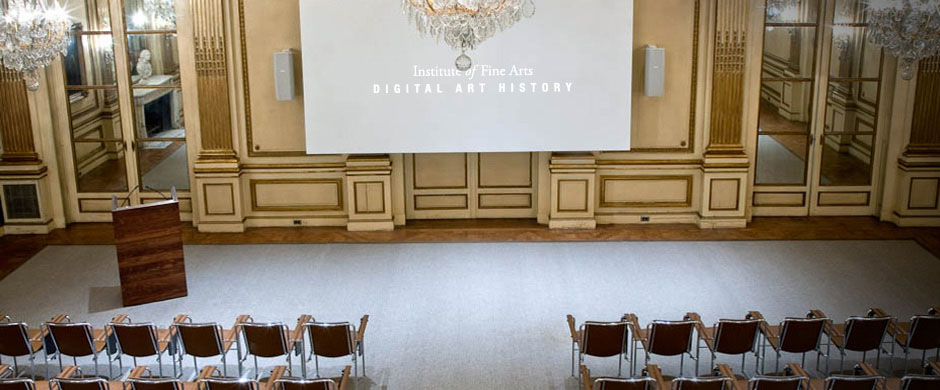 | In the Forefront
| In the Forefront

Digital Humanities Best Practices
The Digital Humanities Best Practices page is a work in progress. It collects resources intended to help students navigate the quickly-evolving world of digital humanities. New resources will be posted here as they become available. IFA students already have access to a variety of assistance through the main offices of the University. For further information, please contact the Digital Media department at the start of a collaborative digital humanities project.
Engaging a Collaborator
As part of the Mellon Research Initiative’s Workshop on Digital Tools, participants engaged with computer programmers, architects, and a variety of professionals in other fields in order to create their final projects. The resulting collaborative environment enhanced creativity and the innovative use of technology for art historical research, but also raised issues of final ownership and project responsibility.
The “Engaging a Collaborator” best practices document is intended as a guideline for scholars in the humanities who seek to work with professionals in other fields in order to enhance their research with digital tools. It was drafted by IFA PhD Candidate Elizabeth Buhe in response to the legal and logistical challenges she encountered while producing her own Mellon-funded digital art history project.
ABSTRACT: This Best Practices document responds to a perceived need for clear, actionable recommendations for humanities scholars beginning a collaborative digital project who want to know: “what questions should I ask if I am interested in starting a digital humanities project?” Because scholars are rarely trained in project management, it aims to provide a series of questions applicable to a wide range of projects; questions that are not written in prose, don’t require significant digging to find, aren’t tethered to a specific group’s experience, and aren’t behind a paywall. This document focuses specifically on the initial stages of a digital humanities project: engaging a collaborator and setting expectations.
Contact the Institute
Building Hours
Contact Information
If you wish to receive information on our upcoming events, please subscribe to our mailing list.



